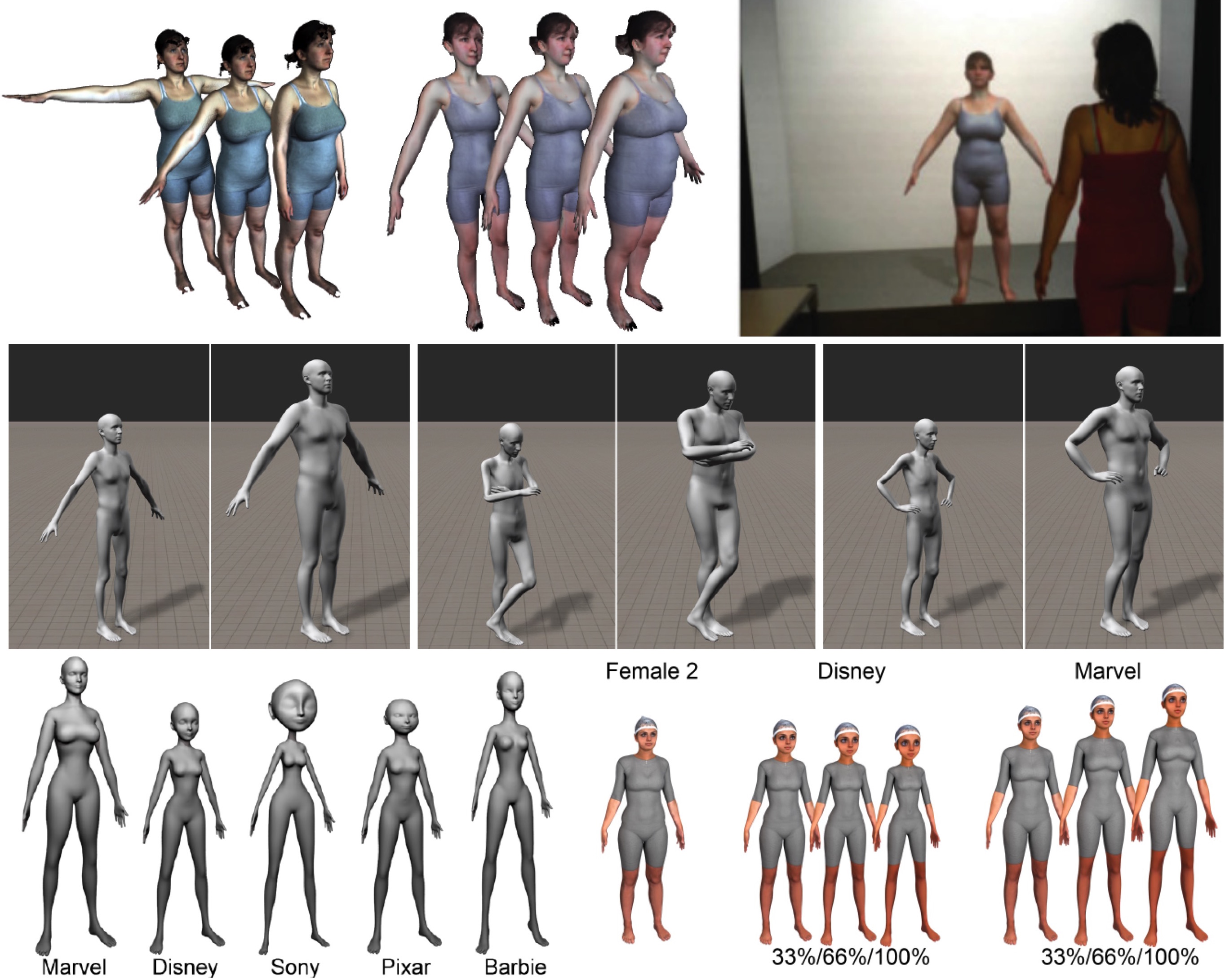
Top: Given scans of a person (left) we construct a 3D avatar and then change the shape of the avatar while keeping the identity fixed (middle). Subjects view their avatar in a virtual mirror and have to judge whether it is their body shape. Middle: We find that both pose and body shape effect the perception of social "power". Bottom: We study what makes avatars appealing by taking real bodies and making them more like cartoon characters. The most appealing bodies are neither fully real or fully cartoons.
We create virtual avatars from full body 3D scans and then manipulate body shape, pose, and appearance to create realistic stimuli for the study of the human perception of body shape.
We created personalized avatars and varied their weight to investigate the relative importance of visual cues (shape and texture) on the ability to accurately perceive own current body weight [ ]. Participants perceived their body weight veridically when they saw their own photo-realistic texture and significantly underestimated their body weight when the avatar had a checkerboard texture.
Body shape and pose influence the perception of physical strength and social power of male virtual characters [ ]. The perception of physical strength was mainly driven by the shape of the body, while the social attribute of power was influenced by an interaction between pose and shape. The effect of pose on power ratings was greater for weak body shapes; a character with a weak shape can be perceived as more powerful when in a high-power pose.
To study the "uncanny valley" we use cartoon body styles derived from popular characters and present a method to stylize the body shape and color of realistic avatars [ ]. In perceptual studies we found that partially stylized body shapes result in increased perceived appeal. Avatars with high stylization or no stylization at all were rated to have the least appeal.
Our ongoing work is focused on body shape perception in patients with anorexia.
